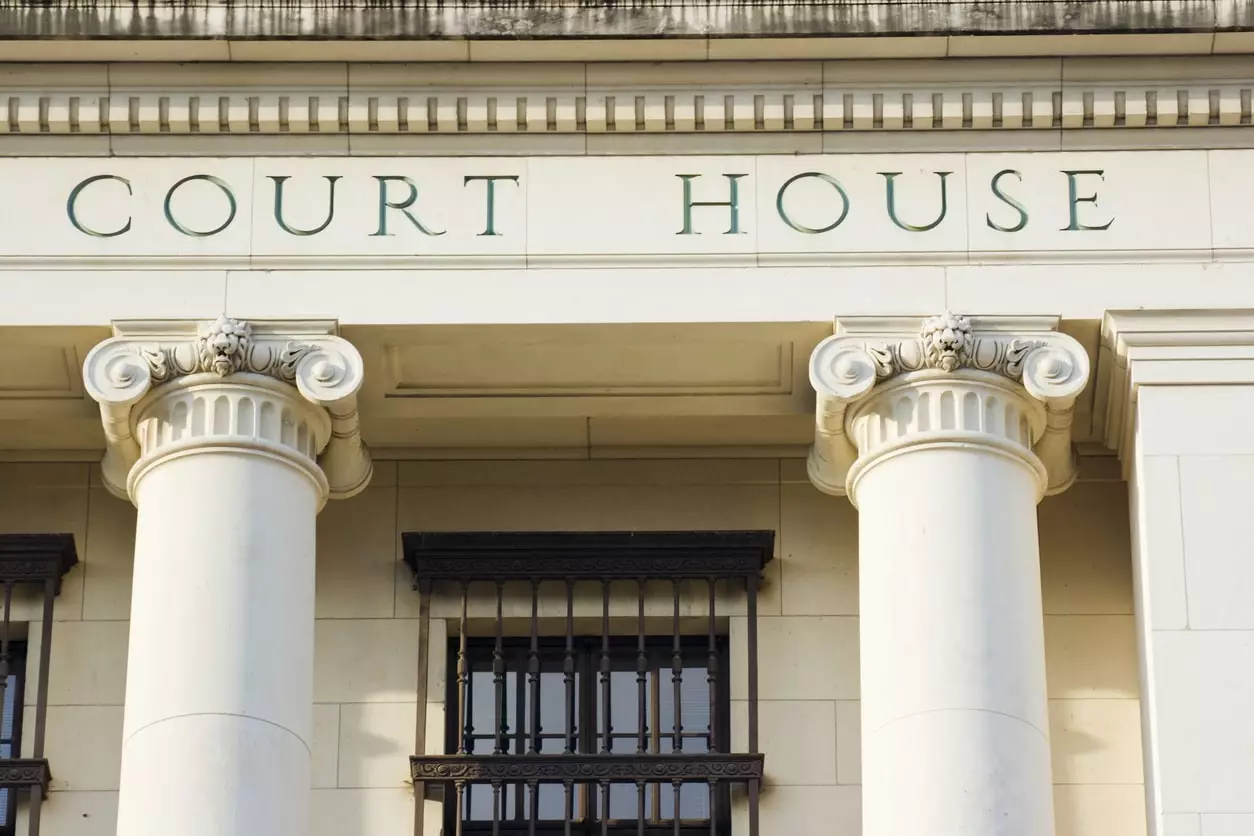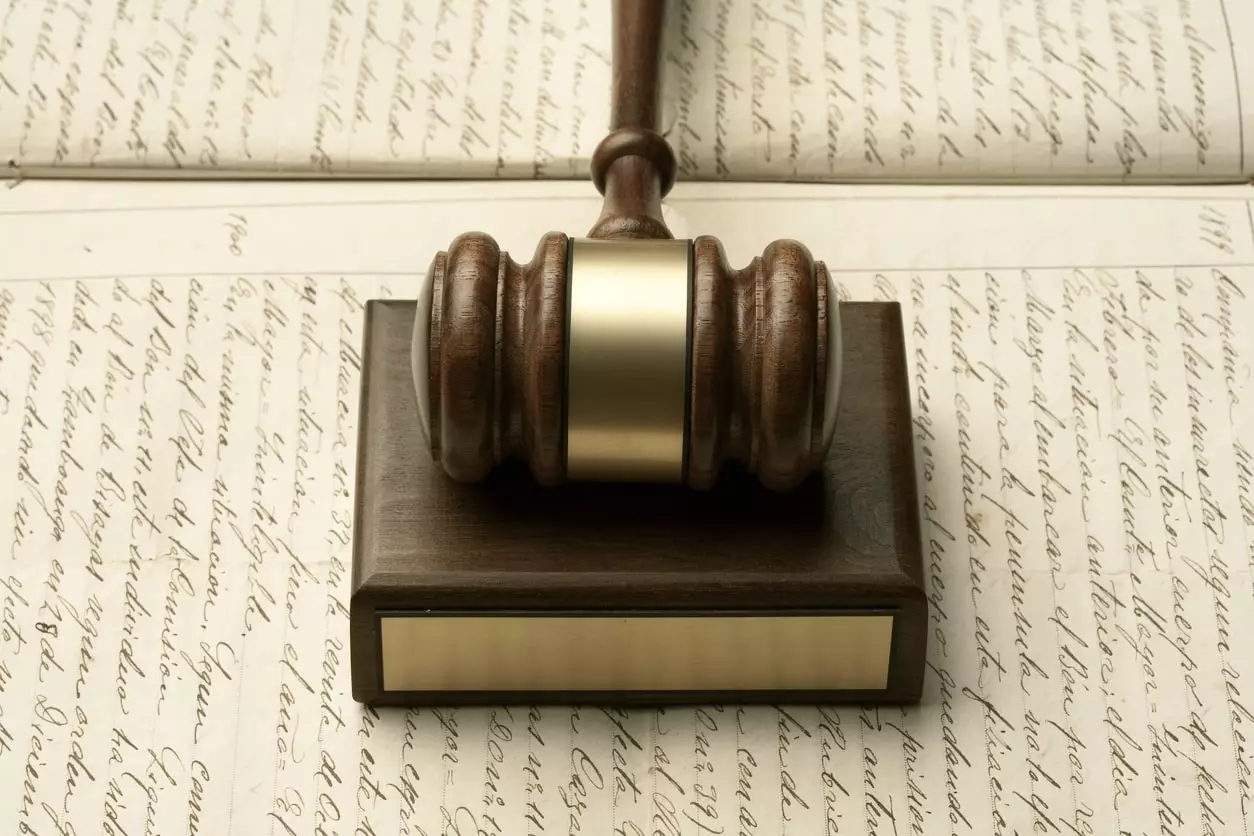 How to Look Up a Criminal Court Docket by Name or Case Number
How to Look Up a Criminal Court Docket by Name or Case Number
Table of Contents
 Alaska Court Records & Case Lookup
Alaska Court Records & Case Lookup
According to the Alaska Court System Statistical Report for Year 2023, approximately 92,454 cases were filed across various categories, including civil cases, criminal proceedings, domestic relations matters, probate cases, small claims, juvenile cases, felonies, and misdemeanors. This diverse caseload highlights the broad range of cases handled by Alaska's courts each year.
The majority of its court records are open to the public. However, certain court records are confidential or sealed, and only the parties involved in the case have access to them.
Anyone seeking to review Alaska court records has multiple options, including online searches via the Courtview system, in-person visits to courts, and mailing requests to the appropriate courts.
 State of Alaska Court System
State of Alaska Court System
The Alaska court system consists of two tiers of appellate courts and two tiers of trial courts.
At the apex of the appellate courts is the Supreme Court, the state's highest judicial authority, which hears appeals on civil and criminal cases from lower courts and oversees the administration of the state's entire judicial system.
Below the Supreme Court is the Court of Appeals, which hears appeals on criminal matters such as extradition, criminal prosecution, sentencing, post-conviction relief, probation and parole, juvenile delinquency, habeas corpus, and bail.
The trial courts form the foundation of Alaska's judicial system, where most cases are initially filed and decided. However, when decisions from these trial courts are challenged, they may be appealed to either the Court of Appeals or the Supreme Court.
Alaska Trial Courts
The trial courts in Alaska are the Superior Court and District Courts, which operate across the state's four judicial districts to ensure accessibility for all residents.
District Courts in Alaska
The District Court operates as a trial court of limited jurisdiction, comprising district and magistrate judges.
District court judges have a broader range of authority and handle cases involving misdemeanors and minor offenses, ordinance violations, civil cases involving claims not exceeding $100,000, small claims cases (up to $10,000 for most cases, and $20,000 for wage claims). Additionally, they issue summonses and warrants, hear domestic violence cases, conduct preliminary hearings in felony cases, handle emergency cases involving children, and hear inquests and presumptive death hearings.
Magistrate judges, on the other hand, manage more routine matters, especially in areas where a full-time district court judge is not required. They hear trials of municipal ordinance violations, state traffic violations, and other minor offenses. They also hold trials and enter judgments in state misdemeanors, contingent upon the defendant's written consent to proceed with the prosecution.
Furthermore, magistrate judges have the authority to issue writs of habeas corpus, solemnize marriages, conduct extradition proceedings, perform notary public duties, and act as hearing officers to review administrative revocations of driver's licenses.
Superior Courts in Alaska
The Superior Court is the trial court of general jurisdiction, which hears all civil and criminal cases brought before the state courts, except matters that can be initiated directly at the Supreme Court.
It also does not hear cases originating in a District Court; however, it has the authority to function as an appellate court for appeals arising from civil and criminal cases determined in the District Court.
Alaska Appellate Courts
The appellate courts in Alaska are the Supreme Court and the Court of Appeals. While the Supreme Court hears appeals on civil and criminal cases, the Court of Appeals hears appeals on only criminal cases.
The Court of Appeals in Alaska
The Court of Appeals has appellate jurisdiction over criminal prosecutions, habeas corpus, bail, juvenile delinquency, post-conviction relief, the excessiveness or leniency of sentences, probation and parole, and extradition.
The court is mandated to hear appeals from final decisions in criminal matters issued by the Superior or District Courts.
Additionally, it has the discretion to review non-final orders from the Superior Court or the District Court, hear petitions for hearing of the Superior Court's final appellate decisions regarding the District Court's decisions, and original applications in cases where the conventional procedures.
The Supreme Court in Alaska
The Supreme Court hears oral arguments monthly in Anchorage, quarterly in Juneau and Fairbanks, and occasionally in other communities. When feasible, the court hears cases in the same district where the original trial occurred.
The court convenes biweekly to review cases argued orally and those submitted on briefs (without oral argument).
What are the Specialty Courts in Alaska?
The specialty courts in Alaska are known as Therapeutic Courts. These courts focus on rehabilitation and the root problems that lead to offenses punishable by imprisonment. The therapeutic courts in the state include:
- Drug and DUI Courts
- Mental Health Courts
- Family Courts
- State/Tribal Healing to Wellness Court
- Veterans Courts
Alaska State Court Records vs. Federal Court Records
Court records are case files that contain documents and other information filed in legal procedures. The main distinction between Alaska state and federal court records is their jurisdiction.
The state court records are established and maintained by courts within the state judicial system. It includes records from:
- Criminal cases, such as prosecutions for violations of state laws
- Civil cases such as contract disputes, personal injury claims, and family law matters like divorces, adoptions and child custody
- Probate proceedings, such as issues related to wills, estates, and guardianships
They are available to the public, and can be obtained in person, by mail, or online via the Courtview system (a state court records database).
On the other hand, federal court records in Alaska are generated by the United States District Court for the District of Alaska. It includes records from:
- Violations of federal laws and regulations
- Interstate disputes involving treaties or the federal government
- Disputes over the constitutionality of the United States laws
- Bankruptcy case
Federal court records are available through the Public Access to Court Electronic Records (PACER) database.
 What Are Public and Non-Public Court Records in Alaska?
What Are Public and Non-Public Court Records in Alaska?
Most Alaska state court records are public; hence, anyone can access them upon request. However, certain court records are confidential or sealed, and only parties to the case are allowed access to the file.
| Public Court Records | Non-Public Court Records |
|---|---|
| Criminal case records | Juvenile records and sealed criminal records, criminal cases eligible for non-public disclosure under rule 40(a)(1) - (15) of the Rule of Administration, |
| Civil case records | Domestic violence, stalking, or sexual assault, Delinquency, CINA (Child in Need of Aid), Adoption, Mental Commitment, Alcohol Commitment, Emancipation, Medical Emergency, an Minor Settlement, and other civil cases eligible for non-public disclosure under rule 40(a)(1) - (15) of the Rule of Administration |
| Traffic case records | |
| Probate records |
 How To Seal or Expunge Alaska Court Records
How To Seal or Expunge Alaska Court Records
The process of sealing court records in Alaska is governed by specific statutes and rules, with different procedures for minors and adults. However, there is no statutory provision for the expungement or destruction of adult criminal records in cases where the defendant has been convicted. Instead, the courts allow certain convictions to be set aside.
While setting aside a conviction provides some relief, it does not permanently erase or expunge court records.
How to Seal Court Records for Juveniles in Alaska
Juvenile court records in Alaska are generally confidential and inaccessible to the public. As juveniles mature into adults, sealing such records becomes essential. Section 47.12.300 of the Alaska Statutes highlights the standard process for sealing such court records. The process consists primarily of automatic sealing and filling for sealing.
- Automatic sealing: Juvenile court records are automatically sealed within 30 days of a juvenile's 18th birthday. If the court retains jurisdiction over the juvenile after the 18th birthday, the records are sealed within 30 days of the court relinquishing jurisdiction.
- Filing a petition for sealing: Automatic sealing does not apply when a juvenile is tried as an adult or their records are made public. Instead, the juvenile or the Department of Juvenile Justice acting on their behalf may petition the superior court to have their records sealed (excluding traffic offenses). This petition can only be filed five years after the full completion of the sentence or five years after the disposition of an offense where records were made public.
How to Seal Court Records for Adults in Alaska
For adults, sealing court records is primarily available in cases of errors, such as mistaken identity or false accusations. Additionally, adults may request the removal of cases from the Courtview system or limited access to court records.
- Request to seal erroneous records: An adult can file a Request to Seal a Criminal Justice Information with the agency in charge of keeping previous convictions or current offender information. The request must include evidence that proves beyond reasonable doubt that the record was erroneous and that charges were dismissed or the petitioner was acquitted. If a conviction occurred, you must prove that the conviction was overturned, set aside, or pardoned.
- Request of exclusion from Courtview system: An adult can file a Request to Exclude Case From Online Public Index with the trial court. This can be done if at least 60 days have passed since an acquittal or dismissal and certain conditions, such as dismissal without a plea bargain or dismissal after a suspended entry of judgment, are met.
- Requests to Limit Access to Court Records: In addition to sealing, pursuant to Rule37.6 of the Rules of Administration, parties to a case may submit a written request to the court for limiting access to case records that are open or have been closed for less than 90 days.
How to Expunge Court Records in Alaska
State court records are not eligible for expungement. However, pursuant to section 12.55.085(e) of the Alaska Statutes, a court may suspend the imposition of a sentence and set aside a conviction if probation is successfully completed. However, this is not applicable to the following offenses:
- Murder
- Offences committed with a firearm
- Stalking
- Sexual offenses
- Human trafficking
- Arson
- Assault in the fourth degree
- Criminally negligent homicide
- Reckless endangerment
 How Do You Access State of Alaska Court Records?
How Do You Access State of Alaska Court Records?
The state court records may be accessed online, in person, or by mail.
Online Access to Alaska Court Records
The courts make their civil and criminal records available online via the state CourtView portal. This database includes records of civil and criminal records heard by the trial and appellate courts in Alaska. It allows searches by case number, name, or ticket/citation number. It offers a free subscription plan for court records searches.
In-Person Access to State of Alaska Court Records
The courts allow in-person access to court records, especially for records that are not available online. Parties to a confidential case may only access file information at the courthouse where the case was filed and may be required to produce identification to view the file.
To access a court record in person, you will be required to submit a written request form to the records department or clerk of court where the case was filed. You may submit the request in person, by email, fax, or mail to the court.
 How To Access Older and Archived Court Records in Alaska
How To Access Older and Archived Court Records in Alaska
Records of a case filed before 1990 may not be available online in Courtview unless such case is reopened. You should contact the court clerk where the trial was held for details of cases before 1990.




